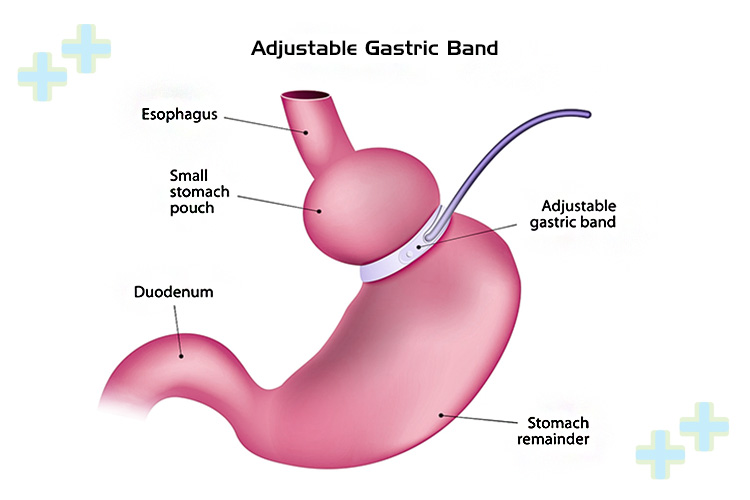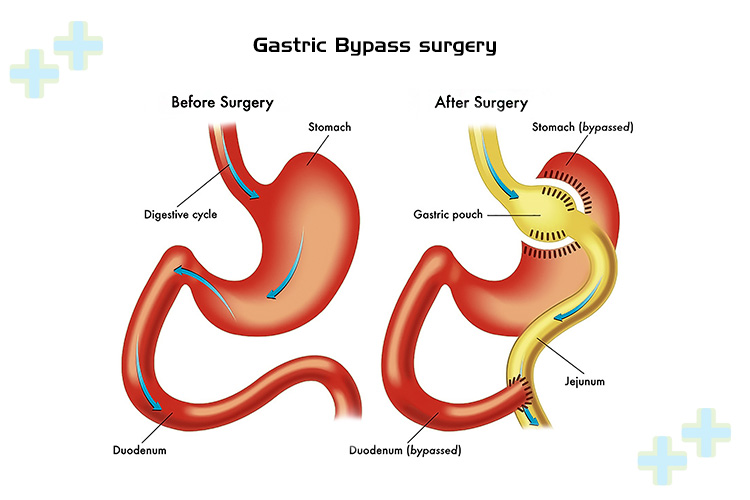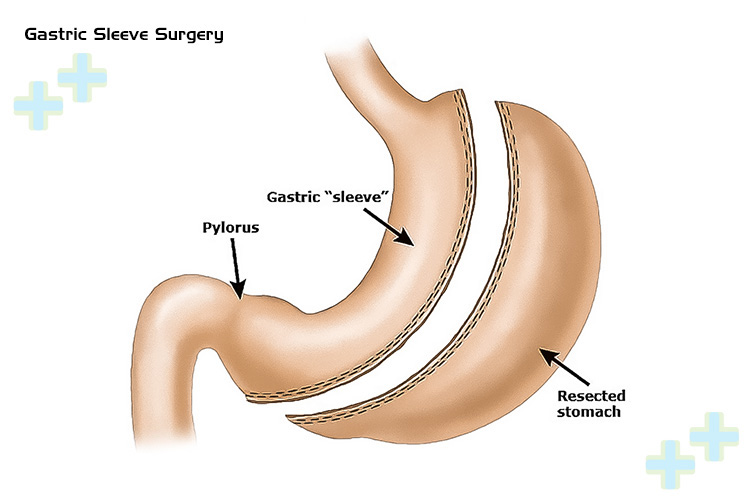What Is Bariatric Surgery?
Bariatric surgery is an effective and safe way to treat obesity and its related conditions. It happens to be a type of weight-loss surgery that is done to help you lose weight and lower your risk of health problems associated with obesity. This type of surgery may be an option if you are unable to lose weight through diet and exercise or you are facing serious health risks due to obesity. Bariatric surgery is clinically proven to be the most effective treatment for long-term weight loss. In this type of surgery, you tend to lose weight by making changes to your digestive system. This type of surgery is done to reduce the size of the stomach, which helps to reduce the amount of food a person can eat. It is typically done on people who are obese and have a body mass index (BMI) of 40 or higher. Bariatric surgeries can also help people with type 2 diabetes, high blood pressure, and other health conditions.
Bariatric Surgery Types
There are several types of bariatric surgeries including gastric bypass, gastric sleeve, gastric banding, duodenal switch, and biliopancreatic diversion; each of which has its own benefits and risks associated with them. Each type of surgery is designed to help people lose weight, but they all have different risks and benefits. Types of bariatric surgery vary, depending on what is best for the patient. Each type involves different methods of reducing the size of the stomach, allowing a person to feel full quicker and absorb fewer calories. With laparoscopic gastric bypass, a small stomach pouch is created and connected to the small bowel, reducing the amount of food that can be eaten and absorbed. With sleeve gastrectomy, a portion of the stomach is removed to reduce hunger and the amount of food that can be eaten. Adjustable gastric banding, also known as lap band surgery, is when a band is placed around the top portion of the stomach to reduce the amount of food that can be eaten.
Why Is Bariatric Surgery Done?
Bariatric surgery is done to help people who are obese lose weight. It is typically recommended for people with a BMI of 40 or higher. People, who are obese, are more likely to develop serious health conditions such as heart disease, high blood pressure, and type 2 diabetes. Losing weight through bariatric surgery can help reduce the risk of these health problems.

Who Is Bariatric Surgery for?
Bariatric surgery is recommended to be performed on adults and teens for those who are obese or have a body mass index (BMI) of 40 or higher and haven’t been able to lose weight with other methods. It is also recommended for those who are morbidly obese, or who have a BMI of 35 or higher and have one or more obesity-related conditions. So, if you have a BMI between 30 and 40, or have any serious health conditions related to obesity, such as type 2 diabetes, and sleep apnea etc., you may be eligible for bariatric surgery.
Are There Any Risks with Bariatric Surgery?
Bariatric surgery is generally very safe and has a high success rate. However, there can be some risks associated with the surgery, which vary depending on the type of surgery, but can usually include complications of the procedure, nutritional deficiencies, weight regain, infections, blood clots, hernias, and nutritional deficiencies. Know about the plausible risks beforehand so as to make an informed decision.
How to Prepare for Bariatric Surgery?
Before the bariatric surgery, you should prepare by discussing the procedure, and its risks & benefits with your doctor. You should also be tested for medical conditions that could interfere with the surgery, such as heart or lung disease. It is also important to prepare for the surgery beforehand by quitting smoking, exercising regularly, and following a healthy diet plan.

What to Expect before Bariatric Surgery?
Before the surgery, you should expect to meet with your doctor to discuss any medical conditions, any medications you are taking, and the type of surgery that is recommended.
What to Expect during Bariatric Surgery?
During the procedure, you should expect to be put under general anaesthesia and monitored closely.
What to Expect after Bariatric Surgery?
After the surgery, you should be prepared to stay in the hospital for a few days. You will also need to follow a specific diet and exercise plan to help you lose weight and maintain your results.
Come to Health Trawell for Bariatric Surgery
Travel well for your health to be thoroughly well by associating with Trawell! Know your options for Bariatric Surgery and then go for the best healthcare plan!

OUR SERVICES

Cosmetic Surgery

Spine Surgery

Organ Transplant

Orthopedic Surgery

Gynecology Infertility

Ophthalmology

Neurosurgery
Cardiology
YOUR GATEWAY TO HEALTH

